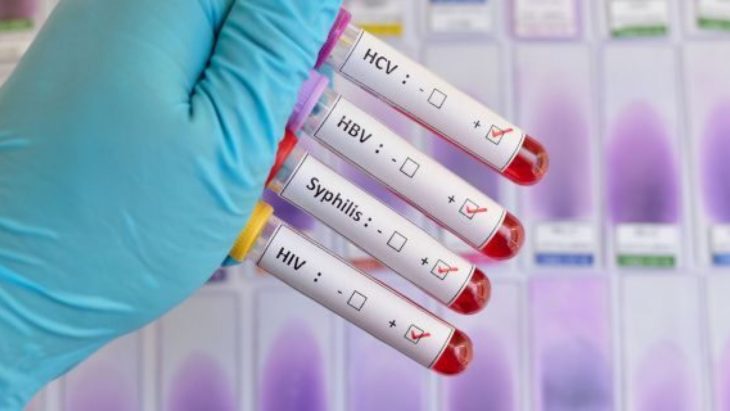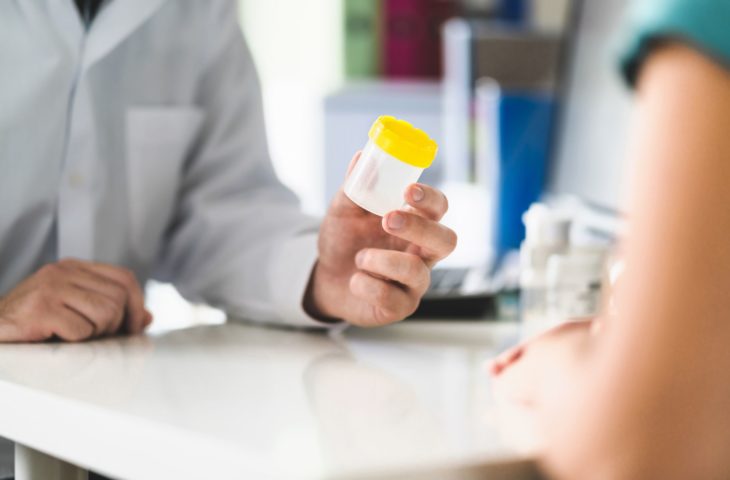If you are sexually active, informing yourself about sexually transmitted diseases known as STDs is absolutely a priority if you want to stay healthy. STDs can be transmitted through any form of sexual contact, such as vaginal, anal, or oral sex, or by sharing personal sexual items (sex toys). They can also be transmitted from a mother to child through breastfeeding or while giving birth. That is why it is essential to use protection every time you have sexual contact with someone and to get tested regularly because some STDs may not cause symptoms, or symptoms may not appear in a predictable fashion.
Symptoms of the STDs

Source: foxnews
Depending on the STD in question, a person can show no symptoms at all or have a range of symptoms such as:
– pain during urination or intercourse
– changes on the skin in the genital area
– bleeding or discharge
– pain, swollenness or itchiness in the private parts
If you have any of the above symptoms, it is vital to contact a doctor immediately and get yourself checked up so you can get proper treatment. Waiting a long time before you go to the doctor can only cause complications and lead to severe consequences such as fertility issues.
The most common STDs

Source: verywellhealth
Bacterias cause Chlamydia, and it is the most frequently reported STD in the U.S., according to the Center for Disease Control and Prevention. The symptoms that usually alert the person that something is wrong are yellow or green discharge from the genitalia, discomfort, and sharp pain during intercourse or urination, as well as the pain in the area of the lower abdomen. If you don’t get treated for chlamydia promptly, it can lead to infections of testicles, prostate gland, and urethra, Pelvic Inflammatory Disease, and even infertility. It can be passed on from mother to child during birth, which can lead to a baby developing pneumonia, eye infections, and blindness. The good news is that it is treatable by antibiotics, and it is vital to get tested so that you know what illness you need to treat.
Human papillomavirus, also known as HPV, can be passed on among sexual partners through intercourse or skin to skin contact. Even though there are many different strains, it is essential to know that some may be more or less problematic than others. The most frequent symptom of HPV has warts in the mouth, throat, or the genital area. Some strains can even cause oral, cervical, vulvar, penile, and rectal cancer. According to research, HPV 16 and HPV 18 are two strains that cause disease in most cases. There is no cure for HPV; however, scientists have developed a vaccine that can prevent it to the greatest extent possible, and it is recommended to give it in the age before engaging in sexual contact, but it can be given even later.
Bacterias also cause syphilis, and it does not cause symptoms in the earliest stages. Usually, the first symptom that the patient notices is a small sore that can appear in the mouth or the genital area. Even though it is painless, it is very infectious. In the later stages of the disease, the patient may notice symptoms like a rash, fatigue, hair loss, fever, headaches, joint pain, and weight loss. If you don’t get treated for it, syphilis can lead to the loss of vision, hearing, and memory, as well as mental illness, infections of the spinal cord and the brain, heart disease, and even death. It is treatable by antibiotics, especially if caught early. It can be passed from mother to child, and unfortunately, it can be fatal for babies. That is why pregnant women should be tested for STDs regularly. The sooner you get diagnosed and treated, the less damage it can do to your health. If you don’t wait forever for test results, visit Same-Day STD Testing, and do something good for your health and peace of mind.
HIV attacks the immune system making it vulnerable to other bacteria, viruses, and various cancers. If the patient doesn’t get treated in the early stages, it can lead to AIDS. The good news is that HIV medications have improved so much that many patients can keep HIV under control for an extended period. Early stages of HIV resemble the flu, so it can easily go unnoticed by the patient. The symptoms include fever, chills, aches and pains, swollen lymph nodes, sore throat, headache, nausea, and rashes. It can stay dormant in the body for many years before developing symptoms such as recurrent fatigue, fevers, headaches, or stomach issues that the patient may rationalize in several ways, making it harder to be diagnosed. Even though there is no cure for HIV, people can live long, and quality lives as they would without it.
Luckily, the awareness about the STDs has increased enormously, allowing everyone to recognize the symptoms and seek treatment promptly. The testing is easy and fast, and in some clinics, even free, so there are no excuses when it comes to caring about your health. An hour of your time can save you from many health issues and even save your life.
Use protection

Source: reachout
Condoms are necessary during every intercourse and sexual contact because it offers the highest percentage of protection when compared to other forms of contraception. It will protect you from unwanted pregnancy, but also most of the sexually transmitted diseases. Their effectiveness concerning protection against gonorrhea and Chlamydia is about 98%. Concerning STDs like genital warts, syphilis, and herpes, it is not as effective because these diseases can be transmitted through skin to skin contact.
To stay to protect, keep in mind that using protection every time is a must, and testing regularly must be your obligation the moment you become sexually active. It is your obligation towards yourself and your partners, especially if you plan to have kids in the future. Suffering from STD can jeopardize that if left untreated.
